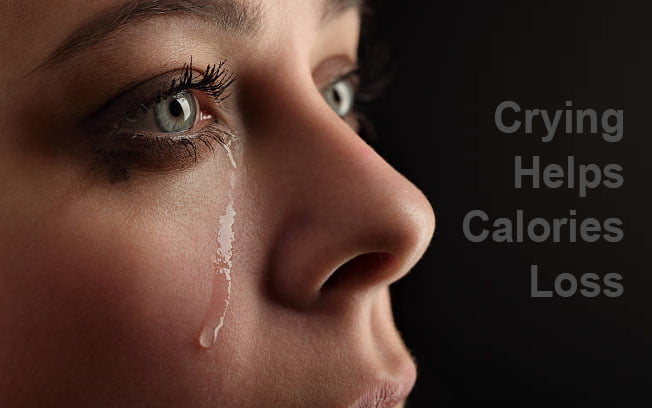
In a world where weight loss is a constant concern for many, the idea that crying could help shed a few extra pounds might sound like a tempting notion. But does crying really burn calories, or is this just another myth circulating in the vast realm of health and fitness? Let’s delve into the science behind tears, emotions, and their potential impact on calorie expenditure.
Before we dive into the calorie-burning potential of tears, it’s essential to understand how crying works from a physiological standpoint. When we cry, our body releases a combination of water, electrolytes, proteins, and hormones. This complex mixture serves various emotional and physiological purposes, such as relieving stress, expressing emotions, and lubricating our eyes.
Crying is often linked to intense emotional experiences, such as sadness, frustration, or happiness. These emotions can indeed increase our metabolic rate temporarily. When we feel strong emotions, our heart rate can elevate, leading to a slight increase in calorie expenditure. However, this increase is relatively small and unlikely to lead to significant weight loss.
One of the most common misconceptions is that tears themselves contain calories. This is simply not true. Tears consist mainly of water, with small amounts of other components, but they are calorie-free. Therefore, shedding tears will not directly burn calories or contribute to weight loss.
While crying itself may not burn calories, it’s essential to consider the relationship between emotions and eating habits. Emotional eating, which occurs when individuals use food as a coping mechanism for their feelings, can indeed lead to weight gain. Crying can sometimes trigger emotional eating, which, over time, may result in excess calorie consumption and weight gain.
Despite not being a weight loss strategy, crying has several emotional and psychological benefits. It can help release pent-up emotions, reduce stress, and provide a sense of relief. Crying can also promote empathy and connection with others, making it an essential aspect of human emotional expression.
In summary, while crying may temporarily increase calorie expenditure due to emotional triggers, it is not a viable method for burning calories or losing weight. Tears themselves are calorie-free, and any potential increase in metabolic rate during crying is too minimal to make a significant impact on weight.
If you find yourself turning to food as a way to cope with emotions, it’s important to explore healthier strategies for managing emotional eating. These may include seeking support from a therapist, practicing mindfulness, engaging in physical activity, or finding creative outlets for emotional expression.
Crying is a natural and healthy way for humans to process emotions and find emotional release. It’s a mechanism that has evolved over time to help us cope with life’s challenges and joys. Rather than focusing on its calorie-burning potential, we should embrace crying as a valuable tool for emotional well-being.
In conclusion, crying is a natural and essential part of being human. While it may not directly burn calories, it serves as a crucial emotional outlet and can promote overall mental and emotional health. It’s essential to view crying in a holistic context, appreciating its benefits beyond its perceived impact on weight.
To maintain emotional well-being and a healthy relationship with food, consider the following tips:
A: No, crying every day will not lead to significant weight loss. While crying can temporarily increase calorie expenditure due to emotional triggers, it is not a sustainable or effective weight loss strategy.
A: Crying can provide emotional relief, reduce stress, promote empathy, and help individuals process intense emotions in a healthy way.
A: Excessive crying can sometimes be a sign of underlying emotional or mental health issues. It’s important to seek professional help if you find yourself crying excessively or unable to control your emotions.
A: Controlling emotional eating involves identifying emotional triggers, seeking support from a therapist or counselor, practicing mindfulness, and finding alternative coping strategies for dealing with emotions.
A: Certain foods, rich in nutrients like omega-3 fatty acids and antioxidants, can help support mood and emotional well-being. However, it’s essential to maintain a balanced diet and not rely solely on food to manage emotions.
In the quest for weight management and overall well-being, it’s important to separate fact from fiction. Crying may not be a weight loss miracle, but it plays a vital role in our emotional lives. Instead of focusing on shedding tears to burn calories, let’s appreciate the healing power of our emotions and seek healthier ways to manage them.
Recommended other topics: Best Fat Burner for Women-A Guide to Your Fitness Goal










© InfoDoot. All Rights Reserved.